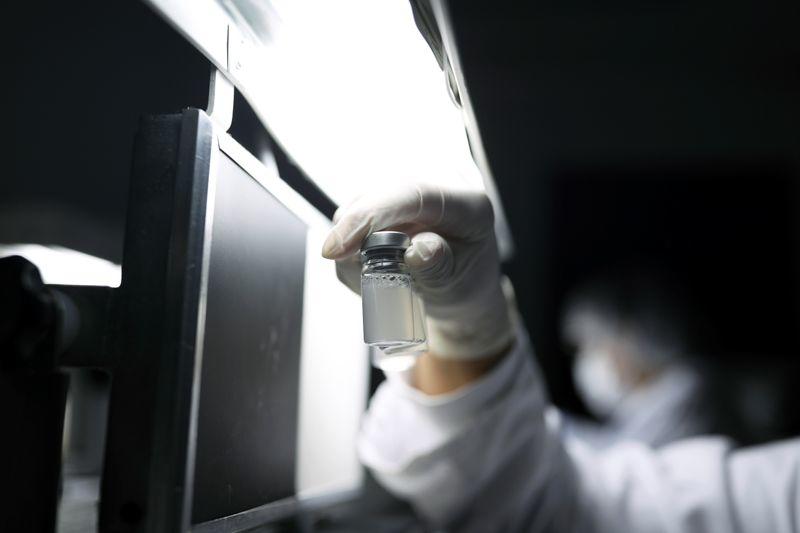By Eduardo Simões
SAO PAULO (Reuters) – A coronavirus vaccine developed by China’s Sinovac Biotech was only 50.4% effective in preventing symptomatic infections in a Brazilian trial, the researchers said on Tuesday, enough for regulatory approval and well below rate announced last week.
The latest results are a major disappointment for Brazil, as the Chinese vaccine is one of two that the federal government planned to start immunizing during the second wave of the second most deadly outbreak of COVID-19 in the world.
Several scientists and observers criticized the Butantan biomedical center for releasing partial data a few days ago that generated unrealistic expectations. The confusion may increase skepticism in Brazil about the Chinese vaccine, which President Jair Bolsonaro criticized, questioning its “origins”.
“We have a good vaccine. It is not the best vaccine in the world. It is not the ideal vaccine,” said microbiologist Natalia Pasternak, criticizing Butantan’s triumphant tone.
Last week, Brazilian researchers celebrated results that showed 78% effectiveness against “mild to severe” cases of COVID-19, a rate they later described as “clinical effectiveness”.
They said nothing at the time about another group of “very mild” infections among those who received the vaccine that did not require clinical assistance.
Ricardo Palacios, medical director of clinical research at Butantan, said on Tuesday that the new finding of lower effectiveness included data on “very mild” cases.
“We need better communicators,” said Gonzalo Vecina Neto, professor of public health at the University of São Paulo and former head of the Brazilian health regulatory agency Anvisa.
Gradual disclosures about Chinese vaccine testing around the world have raised concerns that they are not subject to the same public scrutiny as American and European alternatives.
Palaces and officials of the São Paulo state government, which funds Butantan, emphasized the good news that none of the volunteers vaccinated with CoronaVac had to be hospitalized with symptoms of COVID-19.
Public health experts said that this alone will be a relief for Brazilian hospitals that are suffering from the pressure of increasing the number of cases. However, it will take longer to contain the pandemic with a vaccine that allows for so many mild cases.
“It is a vaccine that will start the process of overcoming the pandemic,” said Pasternak.
DELAYS AND DISAPPOINTMENT
Butantan researchers delayed the announcement of their results three times, blaming a confidentiality clause in a contract with Sinovac.
In the meantime, Turkish researchers said last month that CoronaVac was 91.25% effective based on a provisional analysis. Indonesia gave approval for emergency use of the vaccine on Monday, based on provisional data showing it to be 65% effective.
Butantan officials said the design of the Brazilian study, focused on frontline health professionals during a serious outbreak in Brazil and including elderly volunteers, made it impossible to compare the results directly with other trials or vaccines.
Still, the COVID-19 vaccines in use by Pfizer Inc with partner BioNTech SE and Moderna Inc have proven to be about 95% effective in preventing disease in their major late state tests.
The disappointing data from CoronaVac is the latest setback for vaccination efforts in Brazil, where more than 200,000 people have died since the outbreak began – the worst number of deaths outside the United States.
Brazil’s national immunization program currently depends on CoronaVac and the vaccine developed by Oxford University and AstraZeneca Plc – none of which has received regulatory approval in Brazil.
Anvisa, which stipulates an efficacy rate of at least 50% for vaccines in the pandemic, has already pressured Butantan for more details of its study, after it filed for emergency use authorization on Friday.
AstraZeneca did not deliver active ingredients to Brazil over the weekend, leaving the government struggling to import the final doses of the vaccine from India to start inoculations.
(Reporting by Eduardo Simões; Additional reporting by Gabriel Stargardter and Pedro Fonseca; Editing by Brad Haynes and Bill Berkrot)
